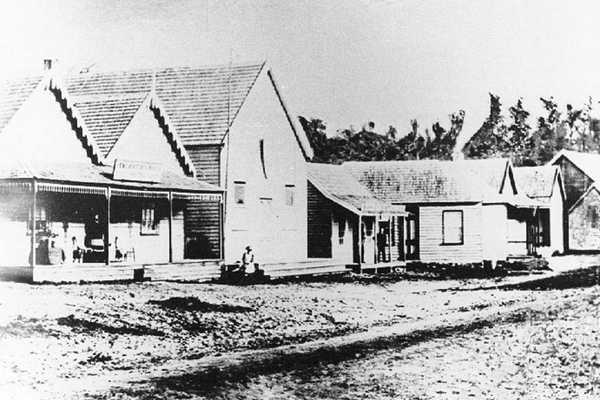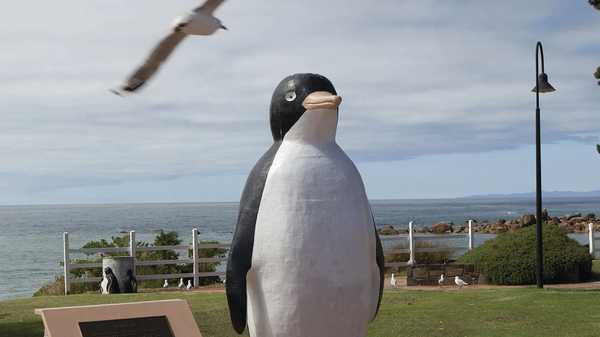Penguin Schools & More
Nestled on the north-west coast of Tasmania, Penguin is a charming seaside town known for its fairy penguin inhabitants, picturesque esplanade, and breathtaking coastal drives. Penguin is home to a little over 4,000 residents (as of the 2021 census), and is a part of the Central Coast Council local government area.
With a rich history rooted in timber trade, the town now thrives on tourism, offering a range of attractions from a towering penguin statue to Tasmania's largest covered market, and a plethora of scenic trails for the adventurous at heart.
History of Penguin
Penguin, a town located on the north-west coast of Tasmania, Australia, was first settled in 1861 as a timber town and was officially proclaimed on 25 October 1875. The town was named by botanist Ronald Campbell Gunn due to the presence of Little Penguin rookeries along the coast. Penguin was one of the last districts to be settled along the North West coast of Tasmania, likely due to the absence of a river for safe anchorage.
Trade began in 1870 with the construction of a wharf, allowing for the export of timber and potatoes. However, the arrival of the rail from Ulverstone in 1901 led to a decline in sea trade. The Penguin Silver Mine, opened in 1870, failed a year later, as did the Neptune Mine. The Local Government Act of 1906 divided Tasmania into 48 Municipalities, and Penguin’s first Council was elected in 1907. In 1993, the council was amalgamated with the Ulverstone council to form the Central Coast Council.

The Natural Beauty of Penguin
Penguin is situated on the picturesque north-west coast of Tasmania, and named after the Fairy Penguin colonies that dot the coast. The town is nestled between Burnie and Ulverstone along the Bass Highway and offers breathtaking coastal drives and scenic walking trails. The Dial Range, a small mountain range with popular hiking trails, forms a stunning backdrop to the town, while the nearby Johnsons Beach Reef and Preservation Bay offer opportunities for beachside relaxation and exploration. The town's natural assets are complemented by its warm and temperate climate, making Penguin a delightful place to live, study, and visit.
Schools in Penguin
Penguin is home to two educational institutions, Penguin District School and North West Christian School. Penguin District School is a public school that caters to all year levels, with separate campuses for primary and secondary. North West Christian School is another Kindergarten to Year 12 school, and is one of only two Seventh-day Adventist schools in Tasmania.
Parents searching for K to 10 Christian schools near Penguin will find that only a short drive away, all students at ACC Burnie are well known, well loved and well taught by a dedicated team of Christian teachers.
Local Attractions in Penguin
A serene delight nestled on the north-west coast of Tasmania, Penguin is home to the iconic Big Penguin, a towering 3.15 metres tall statue that stands proudly overlooking the foreshore. Erected in 1975 to commemorate the centenary of the town’s naming, the Big Penguin is a beloved symbol of the town and a must-see attraction for visitors.
But the Big Penguin isn't the only attraction in this quaint coastal town. Visitors can experience a self-guided audio tour "Ambling Among Penguins Charms" that takes them on a journey through the town's history, culture, and hidden gems. The tour includes stories told by locals and is available in English, Mandarin, and Japanese.
Penguin's Local Economy
The local economy of Penguin is primarily driven by tourism. The town's picturesque esplanade, scenic walking trails, breathtaking coastal drives, and of course, the local Fairy Penguin population, attract a significant number of tourists each year. Additionally, Penguin hosts Tasmania's largest covered market on Sundays, contributing to the local economy. The town also has a rich history in timber and potato exports, although these industries have declined over time.
Transport Options in Penguin
The primary mode of transport for residents and travellers in the coastal town of Penguin is by car, though regular bus services connect the suburb to neighbouring areas like Burnie, Devonport, and Wynyard. For more adventurous individuals, Penguin is home to some of the best mountain bike trails in Tasmania. At Penguin Mountain Bike Park, riders can embark on a cycling journey through the flowing and weaving terrains and bike tracks that suit a range of skill levels.
Local Businesses in Penguin
Penguin is home to various businesses that cater to the needs of residents and visitors, including:
- Mechanic: Jupps Auto Centre
- Electrician: Brian Targett Electrical
- Veterinarian: Penguin Veterinary Centre
- Cafe: Letterbox Cafe
By supporting these local businesses, residents help foster the growth and development of the Penguin economy.
Suburb Snapshot
- The drive time from Penguin to ACC Burnie is approximately 27 minutes.
- Bell times: 8.45am to 3.15pm
- 2025 term dates:
- Term 1: 3 February - 11 April
- Term 2: 28 April - 4 July
- Term 3: 28 July - 26 September
- Term 4: 13 October - 10 December
